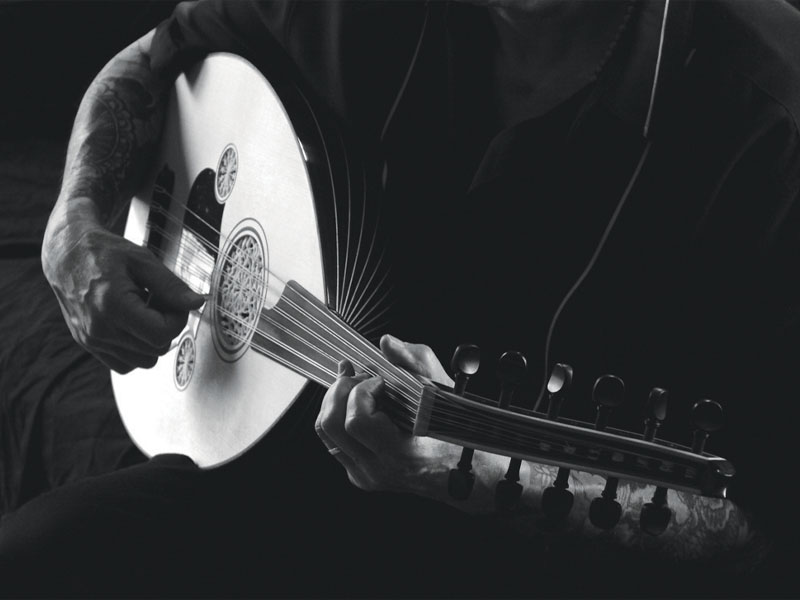The lute in Arab Islamic civilisation: Theory and practice
Issue 27

In the Arabian Peninsula, music and singing are associated with many cultural events. Several historical sources emphasise the importance of music and its relationship with folk culture. Historical references mention the emirs and kings’ fondness for the arts, especially music and singing. Ancient songs were accompanied by musical instruments. In the pre-Islamic era, Arabs used tambourines and flutes, which are mentioned in most Prophetic traditions and in the works of Muslim scholars.

The lute played an important role in the Arabian Peninsula in the pre- and post-Islamic periods. Archaeological evidence gives an overview of the lute’s history in the Arab region, where it existed in different forms and was called by many names. Some references confirm that, “…The Arabs used the lute in the pre-Islamic era; Arabs in the Arabian Peninsula called the lute by several names, some of which had Arabic origins and some of which were Arabised.”
According to references, the lute was of great significance to the Arab-Islamic civilisation. Arab philosophers commented on Arab music and its contribution to civilisation, and they emphasised the importance of musical instruments such as the lute and the role that these instruments played in enriching ancient Arab societies. After the 18th century, Arab music departed from its pre-Islamic and Islamic origins due to the influence of Western music and the Arabs’ subsequent attraction to Western music. Arabs considered Western music modern and contemporary, and Arab music underwent a number of significant changes based on the scientific and practical aspects of Western music.
The fact that lutes still exist today reflects their value and their importance in cultural legacy. Lutes were used throughout the Arabian Peninsula, and the lute has become a cultural symbol of Arab-Islamic civilisation. There was a major turning point in the 20th century when technical advances made it easier to manufacture lutes, improved their range and made them more popular.
Aziz Al Wartani
Tunisia


































































